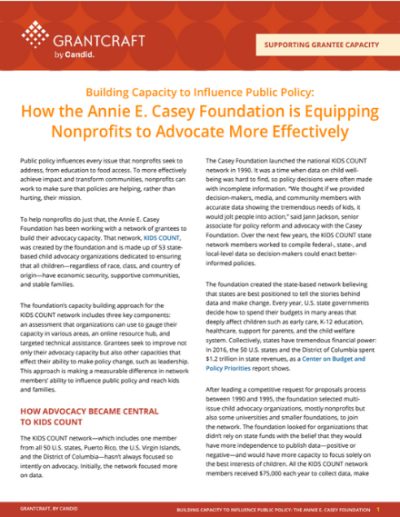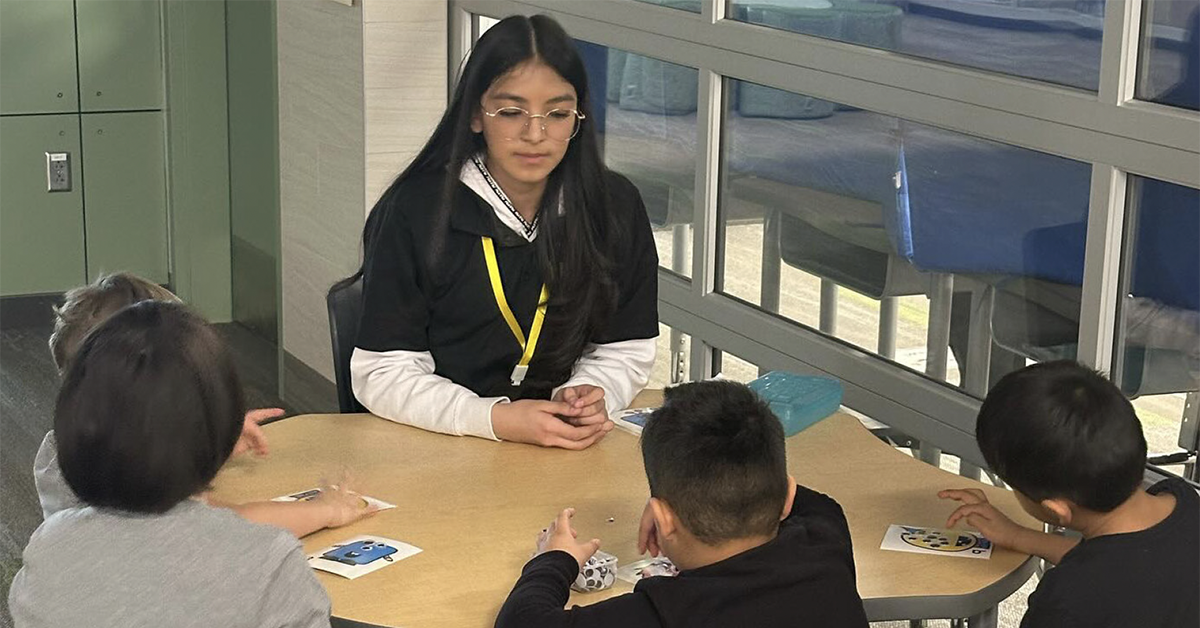Summary
Since 1990, the Annie E. Casey Foundation has been committed to supporting its KIDS COUNT® network of organizations in their efforts to advocate for kids and families. After helping grantees achieve moderate success in the early years of the KIDS COUNT network, the Casey Foundation soon recognized that it needed to modify its approach to more effectively help network members advocate for policy change.
To help organizations achieve maximum impact, the Casey Foundation has broadened its initial focus on data to include advocacy and strategic communications. In fact, it’s become increasingly clear that building advocacy capacity among organizations is key to shifting public policy.
How Casey Helps Network Members Build Capacity
By taking this capacity-building approach, Casey is empowering its network of grantees to improve their data analysis, strengthen their leadership, and more effectively appeal to policy-makers. To inform this approach, in 2011, Casey created a working group of KIDS COUNT network members, Foundation staff members, and professional capacity-building consultants who had been working with the network. The working group identified 90 competencies that are essential for a high-functioning child advocacy organization. These competencies — which were whittled down to six core categories — gave network members shared language to identify and organize their needs so that the Foundation could provide targeted capacity-building support.
The Casey Foundation provides several ways for KIDS COUNT network members to make a long-term investment in capacity. One is the Advocacy Learning Lab, a virtual institute of free, online resources, tools, and technical assistance.
While the Advocacy Learning Lab is the self-serve option for capacity-building resources, direct technical assistance offers more tailored and interactive support. The Foundation engages about 20 technical assistance providers, each of whom supports network members in one or more of the six core competencies.
The providers help organizations build their capacity to analyze data, create communications strategies, use research software, convene partners to push forward a policy agenda, understand how racial disparities show up in their state, and much more.
The KIDS COUNT network is already reaping the benefits of this capacity-building approach. Following the 2016 U.S. presidential election, many network members engaged in urgent advocacy efforts to preserve the Affordable Care Act. They also fiercely advocated against policies that threatened the stability of children in immigrant families. It is likely that the years of targeted capacity-building work have positioned organizations to be more nimble — and respond more quickly in the face of policy threats.







